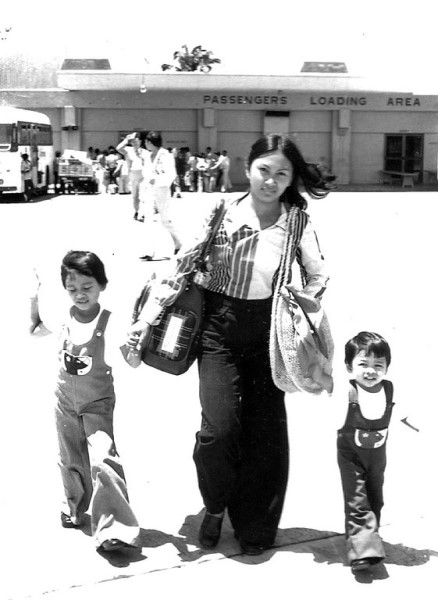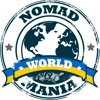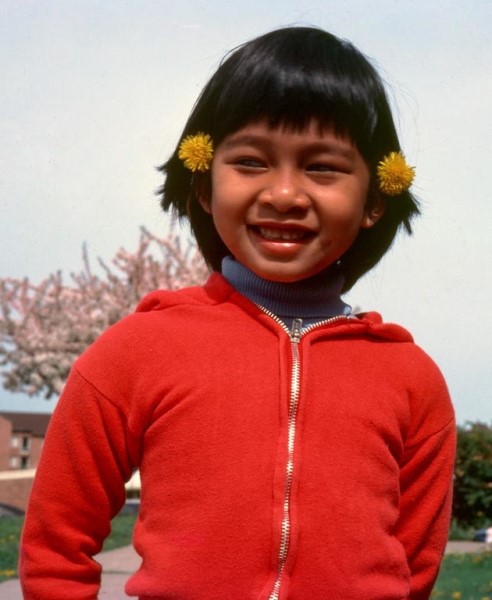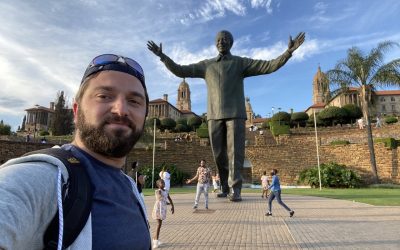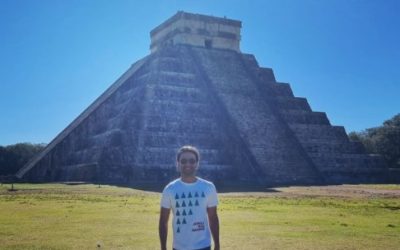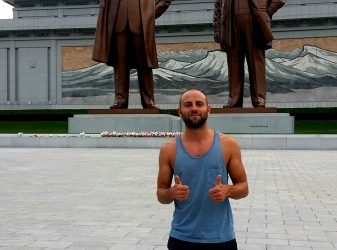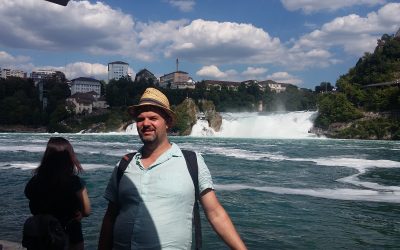Sonriza (Riza) Rasco is a fantastic all-rounder, an entrepreneur with a Ph.D in bioengineering and of course a very avid traveller. This year, despite the pandemic, she has managed to visit 40 countries in total which certainly proves her tenacity and drive. Riza tells us more today and we are delighted to have her as our guest.
Riza, tell us something about your childhood and your early life – how did your fascination with travel develop?
In 1976, I was 5 years old when I made my first trip abroad. My Dad was studying for his doctorate degree at Cornell University, and the rest of the family (me, my Mum and my younger brother) were flying from Manila to New York to join him. Back then in the Philippines, any trip, particularly one to America, was a big deal. I have a very vivid memory of us walking across the tarmac. There was a photographer who took photos as we walked towards the plane. We were all wearing our best clothes, and my Mum was holding both of our hands tightly. A large group of our relatives had come to see us off, and as we climbed the steps to the plane, tearful goodbyes were exchanged. As we took our seats, I remember waiting eagerly for the plane to take off and fly. Then during the flight, I remember getting excited about the thought of seeing my Dad again, and of the adventure that awaited us. Since that first flight 44 years ago, I’ve always looked forward to the next plane ride, the next destination, the next adventure.

You are a PhD in bioengineering, a consultant, and you have founded your own company. Tell us what it takes to be an all-rounder – how do you do it?
I am a believer in the ‘Work Hard, Play Hard’ philosophy. Traveling the world requires a significant amount of money. Since I was not born with a silver spoon in the mouth, I had to embrace education, build a professional career, move abroad, work hard and save my earnings for many years, before I could travel the way I do now. There is no magic bullet to funding travel; no matter how you approach it, it can only be done through hard work and prudent management of your resources.
I was fortunate to have parents who were bright, hardworking and diligent, and who gave me solid guidance. At a young age, I was pressed to study hard and encouraged to become a scientist like them. By the age of 27, I had already completed Undergraduate, Master (Biotechnology/Biochemistry) and PhD (Bioengineering) degrees, with no student debt.
I have always liked to get ahead. Because I chose to stay in the university during the summer breaks and take advanced courses, while others enjoyed their time, I was able to complete my undergraduate studies ahead of my class mates. As a student, I was a member of soccer and basketball varsity teams that competed against other schools and colleges. Doing sports made me strong and competitive.
I had the opportunity to study, work and live abroad by the age of 22. The move to the UK was my first travel abroad as an adult after returning from America. I lived there for the next 10 years. Then I was relocated to the US and went on to live there for 14 years.
I had married a British man who taught me how to save money and manage my finances well. By the age of 23, I was a homeowner paying a mortgage.
My parents were good models for multi-tasking and time management. At an early age, I saw how they were able to successfully juggle their professional careers with parenthood, and still find time to be involved in many other activities.
I had a good early start to a professional career. At the age of 19, I had completed my undergraduate degree and started my first job. When I moved to the UK for my PhD program, I was also doing a full-time job. Just before completing my degree, I was hired by a global company (DuPont), headquartered in the US. During my 17 years with DuPont, I was provided with many opportunities for growth. They sponsored my attendance at Wharton Business School, and the skills that I learned there, in addition to a series of career opportunities that stretched me, gave me the confidence to later tbranch out on my own as an independent consultant (specializing in the commercialization of intellectual property), and subsequently to establish Explore Africa For Impact and the Philippine Global Explorers.
If asked to describe the way that I operate, I would say that I always set big goals and work tirelessly to completing. When I challenge myself in that way, I put my head down and will not stop until I have accomplished my goals. Failure is not an option, and I always deliver on my commitments.
While I was living in the US, I remarried another man who was everything that I wasn’t. Our skills complemented each other and I learned a lot from him, particularly the “soft skills”. He filled in the gaps that made me the “all-rounder” that I am now.
I am childless, not by choice. This meant I had plenty of time to travel and pursue other things.
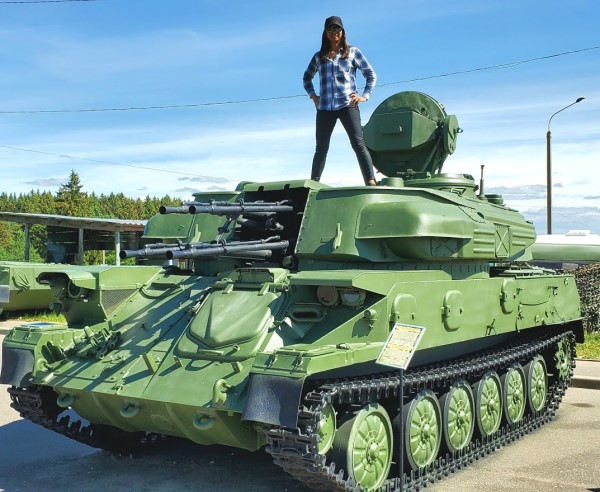
One of your travel-related projects is Explore Africa for Impact. What is that about? What are the challenges and the rewards of this project for you?
Explore Africa for Impact is now a US registered Public Benefit company, a social venture that educates, employs and empowers African women. Our business model is simple, scalable and impactful. We partner with local tour operators in each African country in which we operate, expanding their access to western markets. We encourage and support our partners to deepen their relationships with local communities, leading to richer and deeper experiences for travelers. We identify and commit to local projects, again building deeper relationships with local communities. Our net profits are put back into supporting local communities, with priority for those community service activities that create opportunities for women and girls (education, vocational training, employment). We currently operate in 11 African countries with a goal of ultimately being in all 54 African countries.
These are some of the rewards of our work at Explore Africa For Impact:
- Training Togolese women to become tour guides
Tourism is primarily seen as a man’s domain in Africa. When we looked at what it takes to be a good tour guide (to be aware of the history, culture and traditions of the locations that you’re introducing to your clients, and to be a natural storyteller, bringing those elements to life in an informative, accessible and enjoyable way), we felt strongly that local women needed to be given an opportunity to participate in the growing tourism industry.
- Cleaning up Togo’s public beaches
We have put together a group of women to clean up and maintain a section of a public beach in Avepozo, Togo. This is to demonstrate to the locals how attractive a beach can be if its cleanliness is maintained and to give its tourism a lift. This is one of our ongoing projects.
- Building a school
In Sierra Leone, we’re building a school near Koidu city. The village of Bondaflor is a poor diamond mining community, and most of the families were displaced during the civil war. We have partnered with the chief of the village to build a school, that will provide education for 220 children, ages 4 to 11.
Our operations have obviously been affected by the pandemic. We are not running any tours at this time and will not do so until the pandemic situation worldwide improves and that we are able to run our tours safely.
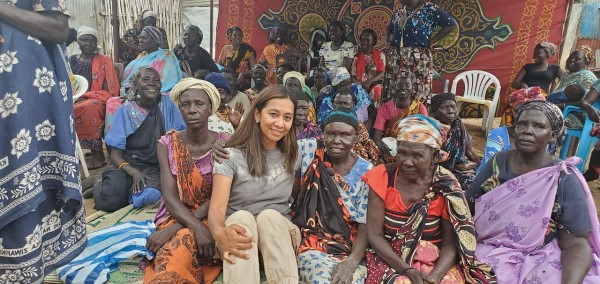
You are very prolific in the media… Give us an overview of your travel profile.
MEDIA APPEARANCE:
Intrepid Filipina Traveler Lands in Nat Geo. Philippine Daily Inquirer. July 2020
The League of Extraordinary Travelers. Philippine Daily Inquirer. Sept 2019.
A Filipino Woman’s Journey Through Africa.
VIDEO INTERVIEWS:
TCC Interview
RADIO INTERVIEWS:
El Hayat TV Algerie. By its founder journalist Habet Hennachi. We discussed tourism in Africa and Algeria.
Sana TV, Syria’s state TV network. They filmed my visit to Palmyra. I was shown the sites destroyed by ISIS and they asked me how I felt about it.

You have become an avid travel blogger in your 40s and your Instagram name is aptly @midlifefunk – how would you compare yourself with the much younger travel bloggers who attempt to become travel influencers?
Embarking on a journey after my mother’s death in the past 5 years has re-shaped me in enormous ways. I re-discovered my passion for dance. I discovered a love for photography and the visual arts. I discovered the creative side of me that gives me joy. I eventually decided to leave my life in the USA to focus on visiting all 193 member states of the United Nations, and building the Philippine Global Explorers and Explore Africa For Impact. This refocusing of my life and rechanneling of my energies has given me opportunities to help others, in areas that I am passionate about. Travel does give you an idea of what else you can do with your life. I haven’t been paying much attention to Midlife Funk, lately except to share and document my travels.
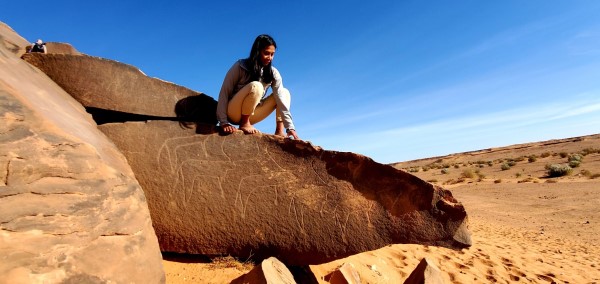
You are also one of the co-founders of Philippine Global Explorers. Tell us about that, and how come the Philippines has managed to get such an active travel community (maybe because it has you!)
We have an active, highly engaged travel community because of our desire not just to travel well, but also be of service to our country.

Turning to your own travel, what type of traveller do you feel you are?
In terms of the kind of things that interest me in my travels, I like to interact with people and prefer authentic, unfiltered experiences. I like to learn how people around the world live their lives. Cultural immersion is important to me and understanding the history of a place and the people.
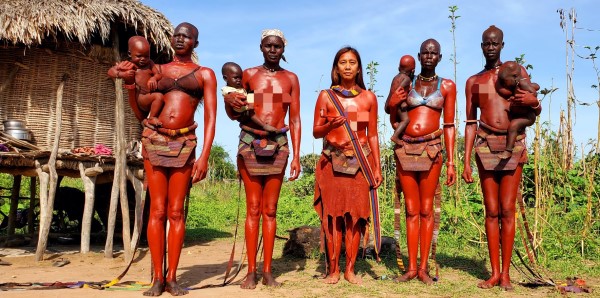
Of the countries you have visited, which ones were a big surprise and why?
Unlike many other travellers, you have kept yourself very busy during the pandemic travelwise, doing many Balkan countries and recently visiting Iraqi Kurdistan. Tell us about your preparation for these trips, how/if it has become harder to travel now and what you would say to those who suggest we should not be travelling at all while the pandemic is on.
I was able to travel safely through 38 countries across four continents (Africa, Europe, North America, Asia) throughout the pandemic period beginning Jan to Sept 2020, without getting infected. Thus, I would say that it is entirely possible to travel safely at this time, but I wouldn’t encourage anyone to do so against any stay-at-home orders. The reason I was able to avoid infection is because I strictly adhered to the prescribed public safety measures:
I wore face masks and eyeglasses/sunglasses whenever I shared indoor or enclosed spaces with other people. When outdoors, I would wear a mask if I couldn’t maintain a safe physical distance from other people. I wore face masks even if I got stares or glares from the locals. I would avoid elevators and preferred to use stairs, where possible.
I washed and disinfected my hands frequently. Whenever there is a bottle of disinfectant (and you are never far from one these days), I would use it. Why not, it is free.
I always avoided any congregation of people by avoiding busy areas such as souks, waiting areas for public transportation, demonstrations, etc.
I chose to drive a rental car, rather than take public transportation.
I went sightseeing early in the morning, to avoid or beat the crowds. The morning sunlight provides Vitamin D, which is good for boosting immunity.
I would visit parks, do nature treks and visit places that were ‘off the beaten track, with hardly anyone around.
I took Airborne or high doses of vitamin C and zinc whenever I took flights, and wore N95 face masks.
I would avoid dining in crowded restaurants.
Preparations for the trip:
Travel now requires quite a bit of forethought and foresight. COVID-19 PCR tests are required by certain countries and also by airlines, as a condition for entry. Some countries restrict the entry of travelers based on their nationalities, some on their travel history for the past 14 days, and some on the country of origin. The logistics of going in and out of countries has become much more complicated.
One now needs to be flexible and patient with travel plans, as any country can close its borders, or change the rules of entry any time without any prior notification. One can easily get stuck in country or at an airport, as entry requirements can rapidly change.
Travel has become more expensive. Flights have become more expensive, due to limited availability. Hostels and guesthouses have shut down, which forces you to stay in hotels, and there are only a limited number of hotels and restaurants in operation. You have to plan your entries into a country more carefully, because of the restrictions not just going in, but also when you come to leave. The cost of COVID-19 testing is also a consideration, as you might find yourself needing to do them frequently.
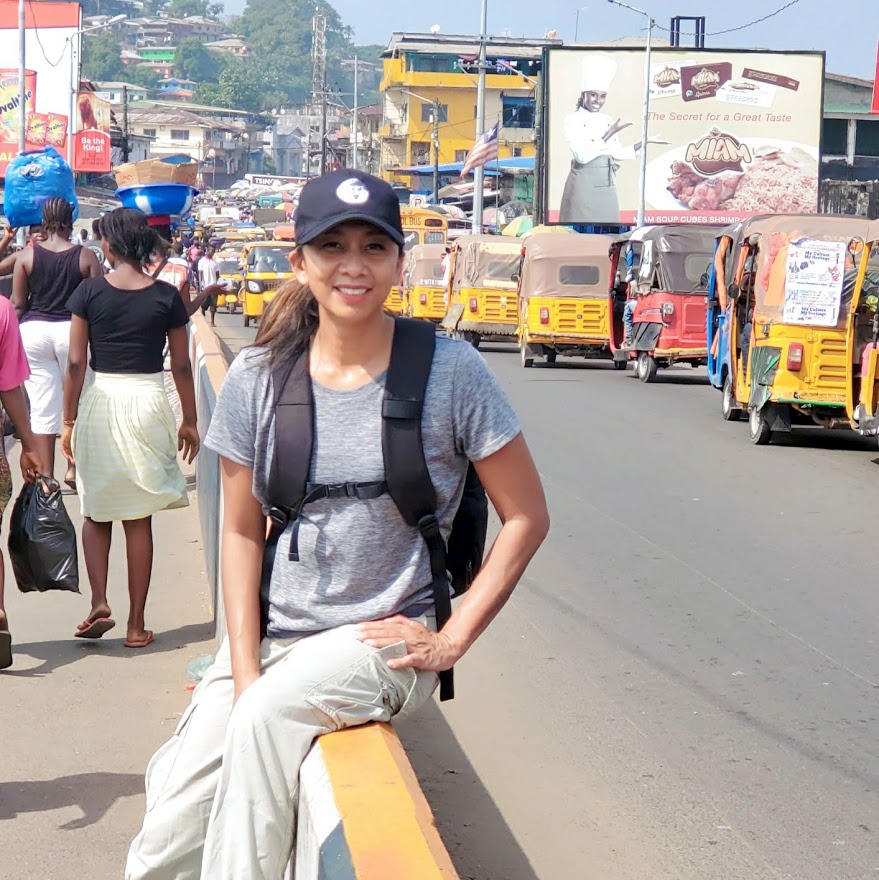
You are at 162 UN countries now, with around 30 to reach 193. What motivates you to try to do them all? Given the COVID-19 situation, has your general timeline been adapted, and how do you see your travels for the next few years?
You’ve met many travellers over the last few years – do you feel there is something that inherently links us somehow as people, or not really?
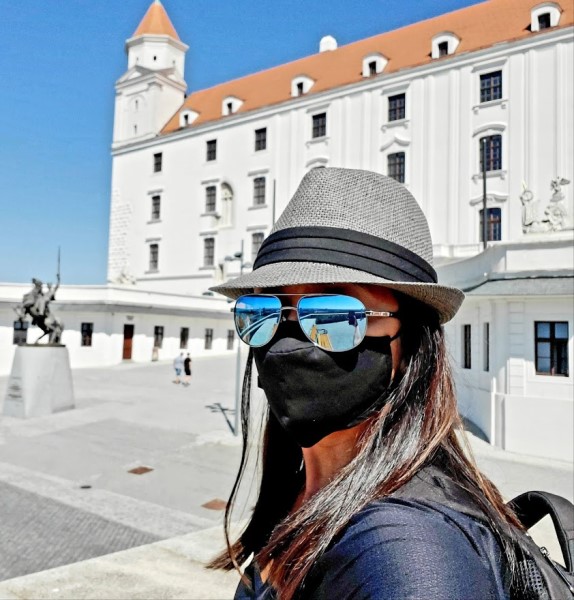
Finally, our signature question, if you could invite any four people to dinner from any period in history who would you invite?
Concepcion “Ate” Aranda (1909 – 1998). Known to my family as “Ate”, she was my maternal grandmother’s aunt who remained single until she died, and had devoted all her life to supporting and caring for an older aunt (Lola Pila). Both Ate and Lola Pila were in their 60s when I was born; they were only a few years apart in age. Lola Pila, who also remained single until her death, was a school teacher while Ate was uneducated. Every year during school break, my Mum would drop me off at their house at my Mum’s hometown where I would stay with them for the entire 3 months of school break. This gave my Mum some respite and a chance to focus on her career and other obligations. Lola Pila and Ate were extremely religious and they’d go to church every day, taking me along with them when I was around. My parents, both scientists, were not religious, and rarely went to church. Apart from teaching me how to pray, Ate, in particular, taught me about unwavering love and devotion. She was fond of me. Never had I felt so much warmth, kindness and affection from anyone until this day. Early in life, I saw her devotion to Lola Pila. Ate died while I was still young. How I would love to have dinner with her and get the chance to talk to her as an adult, to tell her how she taught me how to be soft and kind, and how I wish I had the chance to show my love and repay her kindness.
Gabriela Silang (1731 – 1763). She was the first Filipina to lead an uprising against a foreign power. She was a fearless warrior, who assumed her husband Diego Silang’s role as commander of rebel troops after his assassination in 1763. She launched guerilla attacks against Spanish garrisons – attacks that caused Spanish soldiers to fear her name. In her final battle, she led over 2,000 men to go against an army of over 6,000 Spanish soldiers, who were backed by powerful artillery. She lost the battle and was captured. The Spaniards made her witness the public executions of her men, before publicly hanging the commander herself. She was an immensely courageous woman. The Philippines remains as one of the most gender equal countries worldwide with equal opportunities on political and economic leadership for men and women, because of women like Gabriela Silang. How I would love to have dinner with her, to get to know her more, and to learn what it takes to be a female fighter like her.
Hatshepshut (1507 – 1458 BC). She was the longest reigning female pharaoh and one of Egypt’s most successful and prolific pharaohs. During her reign, she managed to increase the wealth of Egypt by developing vital trade routes and constructing several buildings, statues, and monuments. How I would love to have dinner with her, to learn what it takes to become a successful leader and prolific builder at the time when according to Egyptian tradition, no woman should have been able to assume the full power of pharaoh.
Amelia Earhart (1897 – 1937). She was the first woman to fly solo across the Atlantic, and subsequently broke several flying records. She was attempting a flight around the world when she went missing in the Pacific. Her disappearance is one of history’s unsolved mysteries. How I would love to have dinner with her, to find out exactly what happened to her.
